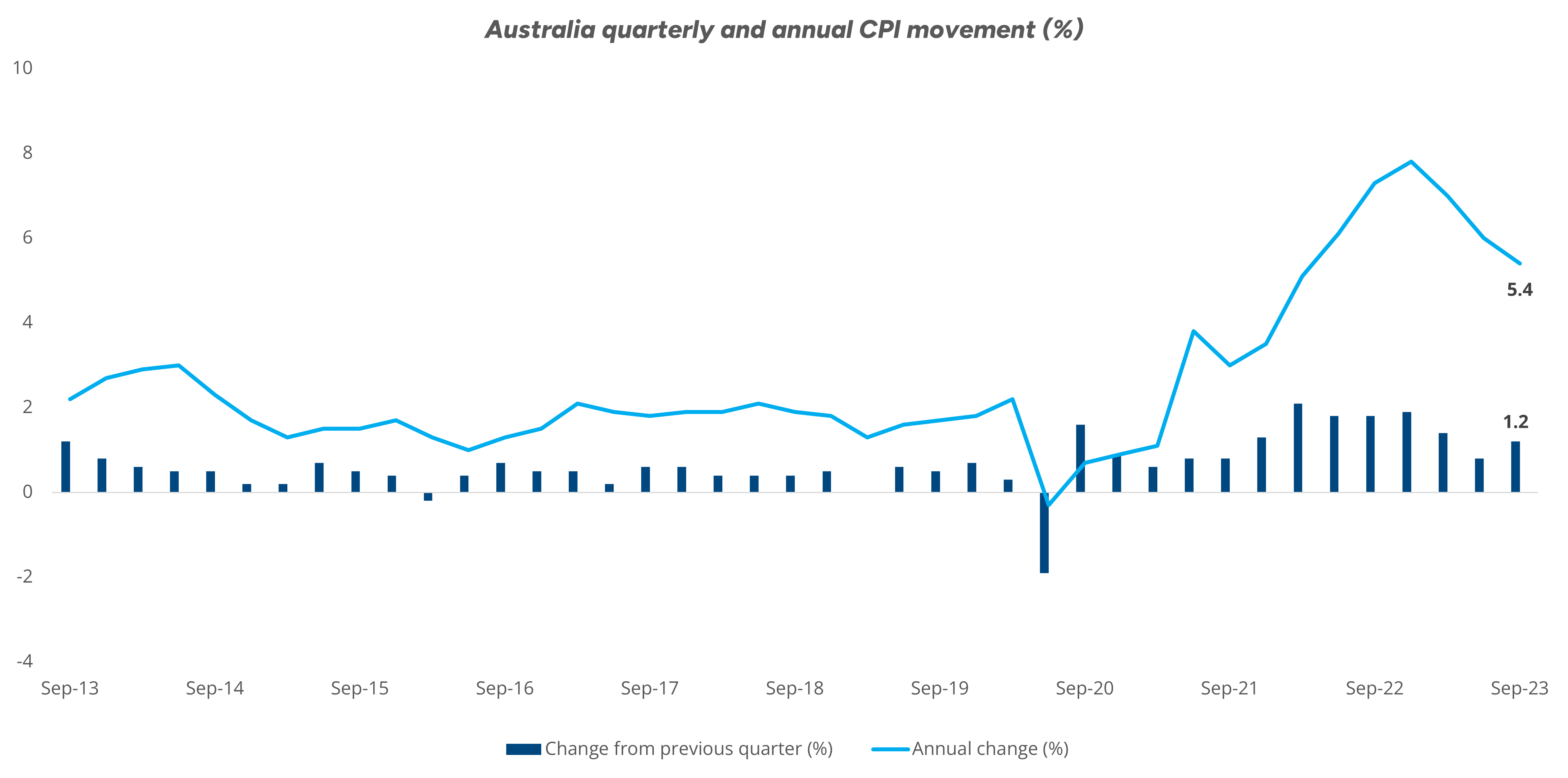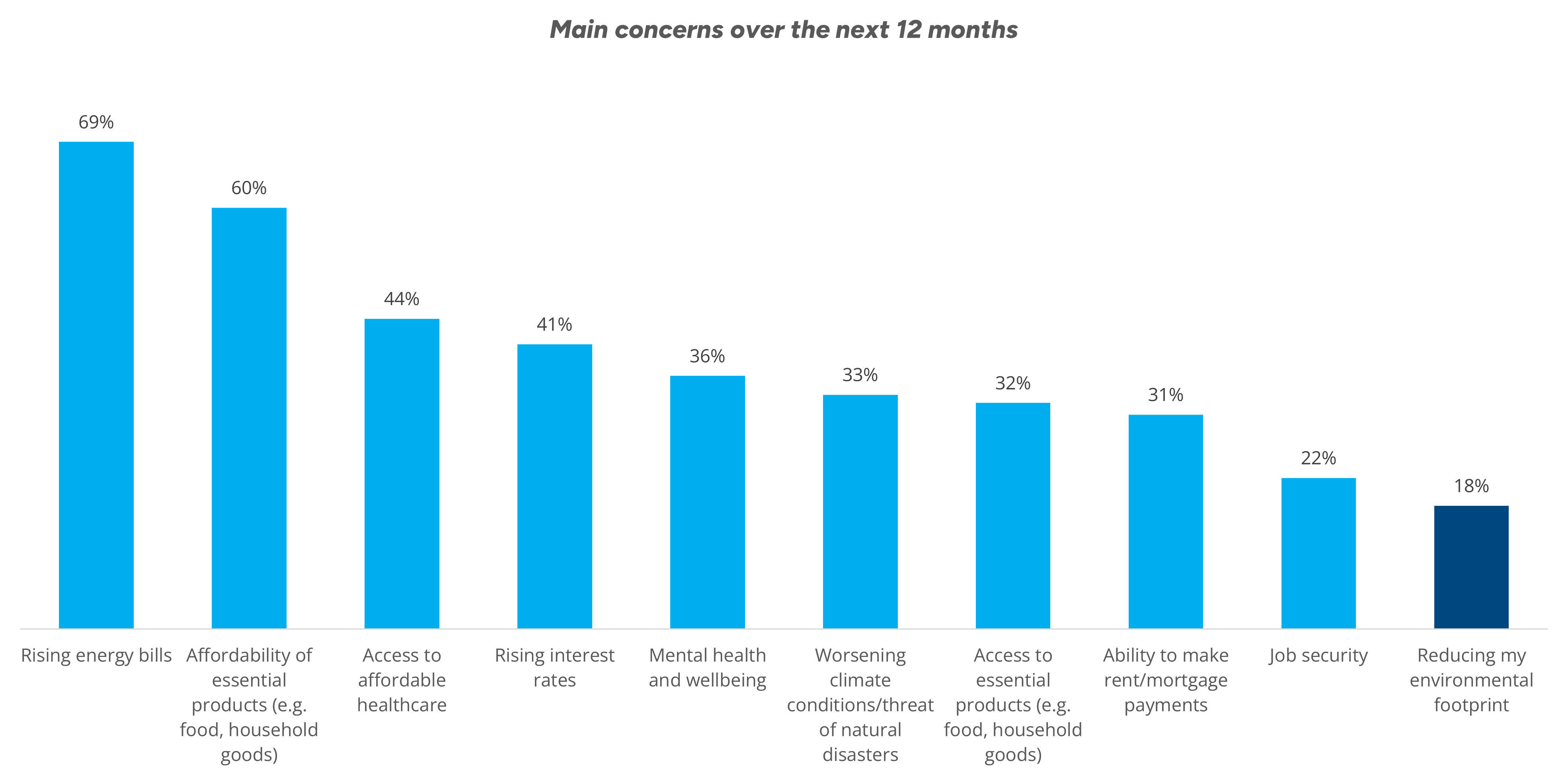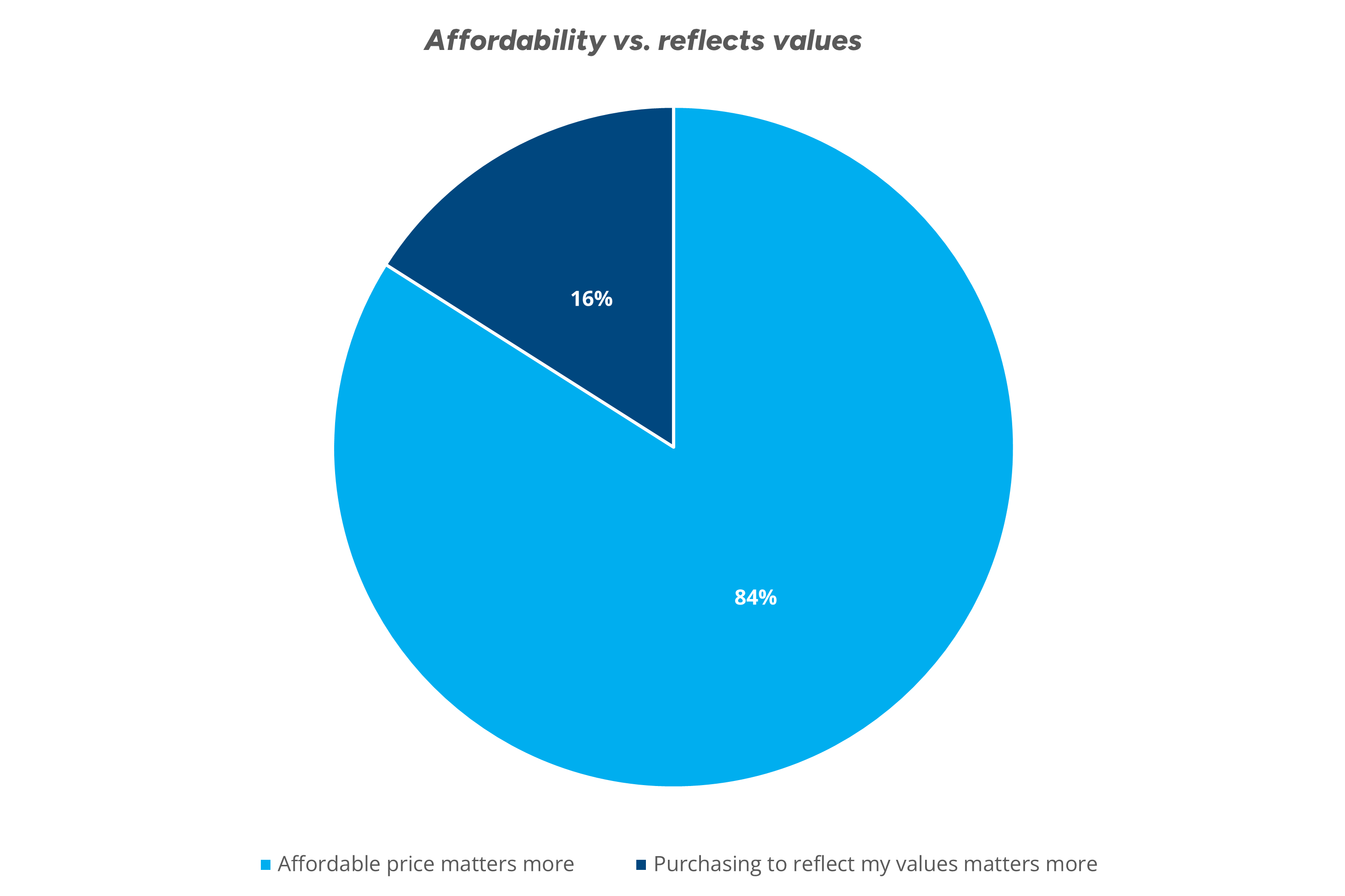Author: Nick Rassool | Posted On: 11 Dec 2023
Australian consumers drastically altered their behaviour during COVID-19, as they were forced to stay at home, and were unable to travel. One benefit of this however was a positive impact on the environment, with consumers having no choice but to buy more locally. This appears to be a behaviour that has persisted following the pandemic, with 44% of consumers claiming they are now more focussed on sustainability (PWC, 2022).
Since 2021, another crisis has however consumed Australia, with the country seeing a sharp increase in inflation. The latest Consumer Price Index figures from the Australian Bureau of Statistics clearly reveal the increasing cost-of-living pressure facing households across the country, with Finder reporting in March that the average Australian household was having to fork out an extra $1,924 per year on groceries than they were 12 months before.

So, are worries about the cost-of-living getting in the way of sustainable living?
Naturally, with higher prices for goods and services (let alone the higher price point that already comes with sustainable products), consumers are having to make trade-offs between sustainable choices and lower prices.
The latest Australian Ethical Consumer Report, published by Baptist World Aid in Partnership with Be Slavery Free, found that value for money matters most to consumers when it comes to factors influencing their purchasing decisions, while buying locally sourced or made products and from brands that have adopted ethical or responsible business practices drop down the list of priorities.
This echoes the latest results from the Fifth Quadrant consumer tracker, with rising energy bills, the affordability of household essentials and access to affordable healthcare standing out as the most significant household concerns, while less than one-in-five (18%) mentioned reducing their environmental footprint.

Further emphasising this point, when asked directly whether an affordable price or purchasing to reflect their values matters more to them, Australian consumers overwhemingly choose affordability (Australian Ethical Consumer Report, by Baptist World Aid in Partnership with Be Slavery Free).

But does this mean consumers no longer care about sustainability?
Despite this trend, one-in-three (33%) consumers are still actively concerned about worsening climate conditions. The challenge appears more personal, with Aussies understanding the broader implications but not finding themselves in a position to act on it by buying sustainable products. With that said, many are still finding alternate pathways to reduce their environmental impact, turning to second-hand outlets like Depop to try and reduce the 227,000 tonnes of discarded clothing currently being sent to landfill each year (Australian Fashion Council).
Moreover, while consumers may be having to make sustinability trade-offs when it comes to the products they buy, they are still engaging in sustainable behaviours outside of purchasing decisions. A 2023 survey by Statista revealed that many Australians are still practicing sustainable behaviours at home, with 55% of consumers claiming to be reducing plastic usage (e.g. by using reusable coffee cups and shopping bags).
What next?
The current economic climate in Australia means that sustainability has dropped down the list of priorities for consumers, at least when it comes to the products they buy. Despite this, Aussies haven’t forgotten about this issue, and are still fighting the good fight when it comes to reducing their environmental footprint (including looking for more cost-effective ways to shop sustainably). There might not be an easy answer, but this isn’t a conversation that’s going away.
If you’ve enjoyed this piece, keep an eye out for our other content or signup for our newsletter below.
Also remember that our consumer tracking survey runs monthly, so feel free to get in touch if you’ve got questions that you’d like answered.
Posted in Consumer & Retail, CX, Financial Services, QN, TL

